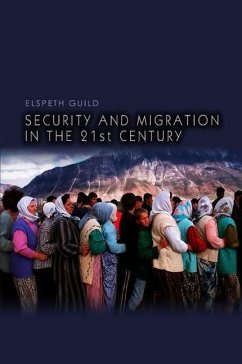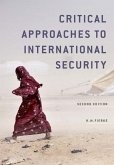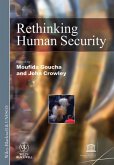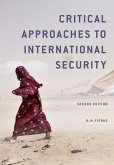The 21st century has brought new and challenging dimensions to our understanding of security and migration. The old Cold War framework of security as related to war and peace, international relations and foreign affairs has given way to a multiplicity of competing notions, including internal security, human security and even social security. At the same time, migration has become a hotly contested issue, characterised by an enormous difference of views and objectives. So what do we mean by security and migration in the contemporary world? How do these two important fields intersect? And what does this collision of policy concerns and public interests mean for states and individuals alike? In this cutting-edge book, Elspeth Guild seeks to answer these pressing questions, drawing on a wide range of recent examples from the impact of asylum seekers on state border security to identity security in citizenship rules to illustrate her arguments. By approaching the topic from the perspective of the individual - citizen of one state, migrant in another - the book examines key aspects of the security-migration nexus, such as the relationship with refugees; torture; extraordinary rendition; privacy and the retention of personal data; and human rights' protection. The first volume in Polity's new 'Dimensions of Security' series, this book is a must-read for all students of international politics, development studies and related fields.
Hinweis: Dieser Artikel kann nur an eine deutsche Lieferadresse ausgeliefert werden.
Hinweis: Dieser Artikel kann nur an eine deutsche Lieferadresse ausgeliefert werden.
"In this important work, Elspeth Guild provides us with a systematic analysis of the relationship between security and migration. Guild brings together critical security studies with a new approach to migration - 'critical migration studies', providing important insights into the changing relationships between citizens and states." -- Stephen Castles, University of Oxford
"Theoretically informed and empirically incisive, Elspeth Guild's account of the sites at which the dynamics of migration meet proliferating claims about security is at once precise and provocative. Its assessment of recent European developments is especially compelling." -- R. B. J. Walker, University of Victoria
"Theoretically informed and empirically incisive, Elspeth Guild's account of the sites at which the dynamics of migration meet proliferating claims about security is at once precise and provocative. Its assessment of recent European developments is especially compelling." -- R. B. J. Walker, University of Victoria
"This book boasts a treasure trove of empirical examples and a primer of sorts on refugee and immigration laws, conventions, and regulations. It also offers much food for thought about the intersection of migration with individual and collective security in the 21st century."
Choice
"This extremely interesting monograph provides a comprehensive overview of the migration-security nexus, investigating key issues raised by this relationship and trying to overcome the uncertain and heterogeneous nature of available information in the field."
International Journal of Refugee Law
"In this important work, Elspeth Guild provides us with a systematic analysis of the relationship between security and migration. Guild brings together critical security studies with a new approach to migration - 'critical migration studies', providing important insights into the changing relationships between citizens and states."
Stephen Castles, University of Oxford
"Theoretically informed and empirically incisive, Elspeth Guild's account of the sites at which the dynamics of migration meet proliferating claims about security is at once precise and provocative. Its assessment of recent European developments is especially compelling."
R. B. J. Walker, University of Victoria
Choice
"This extremely interesting monograph provides a comprehensive overview of the migration-security nexus, investigating key issues raised by this relationship and trying to overcome the uncertain and heterogeneous nature of available information in the field."
International Journal of Refugee Law
"In this important work, Elspeth Guild provides us with a systematic analysis of the relationship between security and migration. Guild brings together critical security studies with a new approach to migration - 'critical migration studies', providing important insights into the changing relationships between citizens and states."
Stephen Castles, University of Oxford
"Theoretically informed and empirically incisive, Elspeth Guild's account of the sites at which the dynamics of migration meet proliferating claims about security is at once precise and provocative. Its assessment of recent European developments is especially compelling."
R. B. J. Walker, University of Victoria








